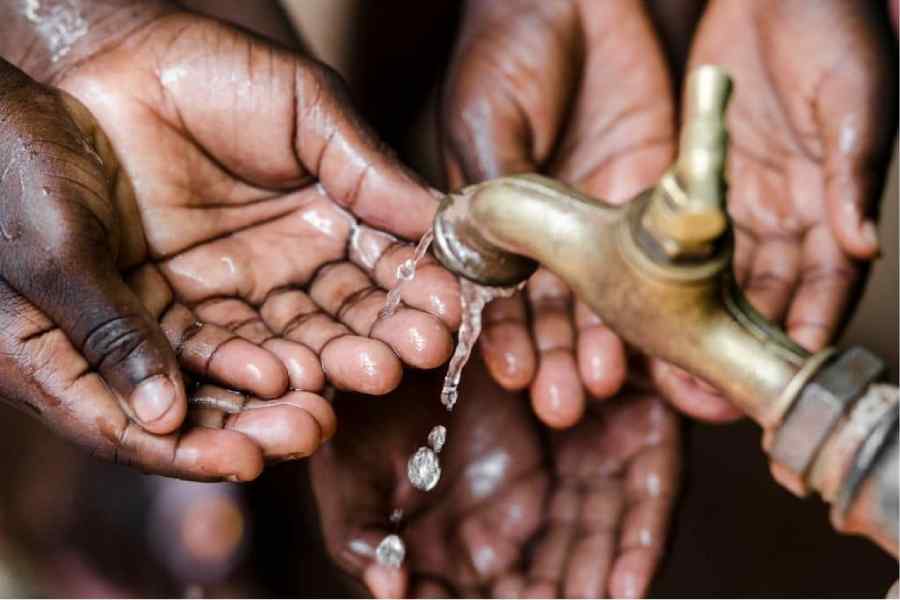Residents in and around Raninagar on the outskirts of Jalpaiguri town resorted to protests at the local industrial estate on Monday, alleging that consistent extraction of groundwater by several private commercial units at the estate has led to a decline in groundwater level.
Over 300 residents, accompanied by some local Trinamool leaders, protested in front of the industrial estate.
“A number of industrial units which make cold drinks (beverages) or sell packaged drinking water at the estate draw groundwater regularly. These units are drawing more water now as there is a steady demand cold beverages and packaged drinking water during summer,” said Mukta Roy Mohanta of Bamanpara near Raninagar.
Residents, primarily dependent on wells, have not been getting water as groundwater levels had plunged.
“Most of the wells have dried up. In a few wells, only muddy water is available. Since April, around 20,000 residents of the area are facing an acute problem of water,” said Purnima Roy, head of the Trinamool-run Belakoba panchayat of Jalpaiguri.
She said that many local water bodies dried up in the scorching heat. People in Mohantapara, Bamanpara, Thutapakhti, Shukurpara, Golgoomtee, Bakshipara, Baniapara, Cheorapara and Raninagar are finding it tough to get water for drinking and other daily chores.
“The commercial units should understand the situation and keep a balance so that the underground water reserve doesn’t deplete. Also, they should either supply water to us or install deep tube wells in our areas,” said Ganesh Roy of Raninagar.
He said many had to buy drinking water. Those who couldn't afford it had to go to a local petrol pump to get water from a deep tube well.
Uttam Barman, an INTTUC leader of Raninagar, said they backed demonstrators as the cause was valid. “Being local residents, we also face the problem,” said Barman.
The Indian Meteorological Department (IMD) says there is a seasonal rainfall shortage of around 49 per cent here from March 1 to May 6.
“There was almost no rainfall in Jalpaiguri during the past six months. Thus, groundwater is not getting recharged. Whatever water is left in the aquifer (which holds the groundwater), is being used. It is evident that if groundwater is drawn excessively in one location, its levels will go down in the adjoining areas. This has happened in Raninagar too,” said Jatiswar Bharati, a researcher and the assistant secretary of Bangiya Bhugol Mancha.
The demonstrators submitted a memorandum to the representatives of the beverage-making company.











